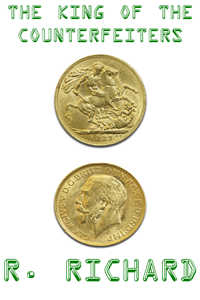
EXTRACT FOR
The King of The Counterfeiters
(R. Richard)
|
One thing
that national governments seem to have a great deal of trouble understanding is
the economic law of supply and demand.
Supply and demand is an economic model of price determination in a
competitive market. The economic law of
supply and demand concludes that, in a competitive market, price will adjust to
equalize the quantity demanded by consumers, and the quantity supplied by
producers, resulting in a dynamic equilibrium of price and quantity. Of course, there are other factors that
impact price, such factors as quality and dynamic availability. In the
economic chaos that followed World War II, there was a demand for dependable
money in markets where counterfeits were routinely encountered. One of the most dependable items of money in
many markets was a gold coin, the British gold sovereign. Large
scale minting of the British gold sovereign for circulation ceased in the
London Mint in 1917. The six branch mints carried on making relatively small
numbers of the coin for some time after the 1917 date. The Pretoria Mint in South Africa then made
the last branch mint gold sovereign coins in 1932. The
drying up of supply of British gold sovereign coins, along with an unsatisfied
demand, led to the price of a British gold sovereign coin rising to much more
than just the price of the gold it contained. |

